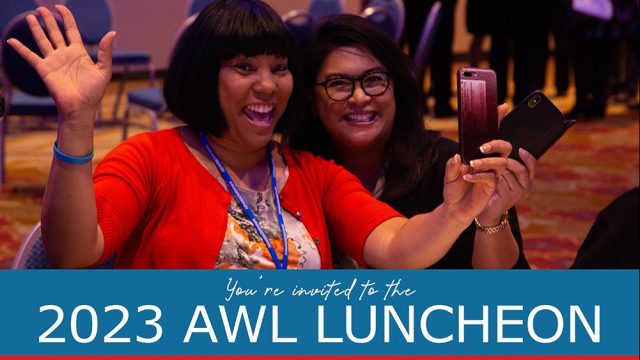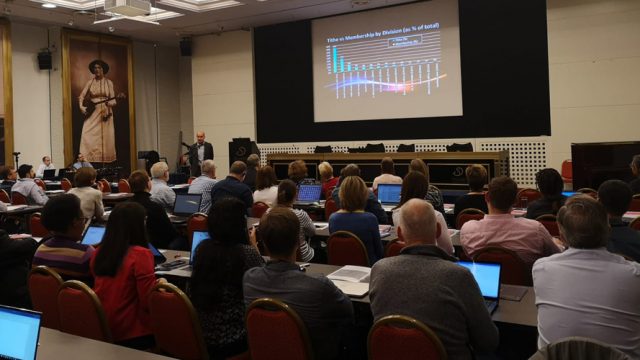Digital Week highlights internet potential, opportunities for evangelism.

A recent digital emphasis week organized by the Seventh-day Adventist Church in Brazil highlighted the potential and opportunities the internet offers for evangelism, regional church leaders said. Digital Week took place September 19-21, 2018, and was broadcast live via Facebook, YouTube, and Instagram from the South American Division (SAD) church region headquarters in Brasilia. The event included interactive discussions on how to implement new methods to help more people get to know Jesus through the internet.
“Communication is changing hands,” said SAD digital strategies director Carlos Magalhães. “Influencers are changing. You must have some authority before you talk about a specific subject.”
Magalhães explained that nowadays people are looking for someone who is similar to them, for other people who feel the same pains. “In our case, we are looking for ordinary people who are already on the internet and who can inspire others [through that medium].”
Church leaders said that a recent survey of households across Brazil provided vital clues that can inform the Seventh-day Adventist use of the internet as a means of doing evangelism in that South American nation. Results of the National Continuous Household Sample Survey, released in February 2018, showed that 116 million Brazilians — or 64.7 percent of the population — accessed the internet in 2016. Among them, 76.4 percent said that, among other activities, they have subscribed to video content. According to the survey, the age group of 18- to 24-year-olds is the group spending the most time online.
The Adventist Church sees great potential in this data, church leaders said. Regional leaders used the Digital Week event to discuss methods and opportunities for getting closer to that segment of the population.
New Products
In light of this new reality, in 2017 the Adventist Church in South America launched Feliz7Play, a video aggregator that is building bridges between the virtual and the real world. Designed initially to bring together Christian audiovisual productions, it soon began to create exclusive products that could “talk” with the public.
Such is the case with -10: Life Is Not a Game and Unmatched. Both initiatives target teenagers and young adults and delve into emotional dilemmas and the dynamics of relationships. According to producers, the series show real dramas the “online generation” typically faces. Material from Adventist YouTube video creators is also included.
Event Highlights
During Digital Week, leaders and young people discussed a range of topics included in the new videos, such as bullying, dating, the challenges of parenting, and forgiveness. The event also showcased what ordinary people are doing to share a message of hope with others through the internet. At the same time, it sought to encourage people to get involved in this initiative following the event.
And many young people are already doing it.
Amanda Bravo, for example, in trying to overcome her natural shyness, tried to find ways to share her faith online. Bravo, a publicist, launched a YouTube channel to share what she does to make Bible study more enjoyable. At first, she did not imagine to what extent her videos would make a difference in the lives of many internet users.
“When I upload a video, I have no idea whether someone will watch it. But as I get feedback, I’m amazed. Many people get in touch saying it is what they needed to hear,” said Bravo, who began studying the Bible with a whole family after they watched one of her videos.
Beyond Figures
Feliz7Play already has more than 1,400 videos available in Portuguese and Spanish, which amounts to approximately 250 content hours. More than 58,000 people have subscribed, and views exceed 4 million. The film Libertos, released this year, has been watched more than one million times in both languages.
For Magalhães and his team, however, the most important figures are the ones that reveal how many are contacting a Seventh-day Adventist church after watching the videos. “In the last episode of the first season of the -10 series, a phone number was included so that people could call to share their problems,” he said. On the first weekend after the broadcast, producers receive more than two thousand messages. Volunteers took care of contacting every single person.
In his research to understand who they are talking to, Magalhães found that their following goes beyond Adventist Church members and includes other Christian and even non-Christian audiences.
“We have appropriated this format as something they already know,” he explained. “The message is the same, but on the internet, we try to share in a way that allows them to take in the contents. It is indeed an outstanding method for preaching the gospel.”








